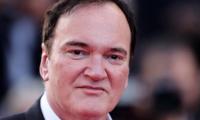LAHORE
Former governor of Punjab Lt-Gen (r) Khalid Maqbool has said that ethics and behaviour of doctors has become a big issue nowadays adding our medical institutions should build internal systems of accountability.
According to a press release, he was addressing a book launching ceremony of “A Handbook of Behavioural Sciences”, here at the University of Health Sciences (UHS) on Friday. The book is written by Prof Mowadat H Rana, Dr Roop Zainab Rana and Dr Mansoor Mustafa as a textbook for medical and dental colleges students. Former governor said ethical issues were not uncommon when dealing with healthcare and added treating patient as an individual was an important principle. Dignity and respect for patients should be of great importance, he emphasised. Punjab Higher Education Commission (PHEC) Chairman Dr Mohammad Nizamuddin said almost six percent of the population of country was comprised of elderly people adding doctors should be sensitive to the special needs of such people.
Prof Nizam was of the opinion that area of public health was being criminally neglected. “One or two public health institutes would not serve the purpose. We need more institutes with social scientists working there in close collaboration with health professionals”, he maintained. UHS Member Board of Governors, Prof Dr Malik Hussain Mubashar, was very critical of unethical medical practices on part of the healthcare professionals and unethical marketing practices by the pharmaceutical trade and industry. “Pharmaceutical industry is working overtime to pollute and corrupt the younger generation of healthcare professionals through different means such as offering gifts and arranging foreign trips”, he said.
He sarcastically said we have too many anti-depressants, anti-anxiety and anti-psychotic drugs but what we need now is that the pharma industry should come up with certain other innovative products like “Anti-Greededosis” (to treat greed), “Anti-Jealousemia” (to treat jealousy) , “Anti-Prejudosis” (to treat prejudice) and “Anti-Stigmadosis” (to treat stigma and inertia). He also ‘prescribed’ two drugs for doctors, namely “Compassomimetics”, “Ethicomimetics” and “Empathomimetics” to enhance compassion, ethics and empathy in them.
In his welcome address, UHS Vice-Chancellor Maj-Gen (r) Prof Muhammad Aslam said the university took a lead by including the subject of Behavioural Sciences for organised teaching and training at the undergraduate level in all its affiliated medical and dental colleges. The author of the book, Prof Dr Mowadat Hussain Rana said historically medicine was a subtle mixture of science and art. However, modern medicine had handed over an equipment intensive approach to its practitioner but, in the process, had made the doctors of today unlearn the time-tested art of a good doctor – patient relationship. “Doctors have been talking to organs and diseases and not persons”, he added.
Prof Mowadat said UHS was trying, by introducing Behavioural Sciences in medical curricula, to give back to the medical profession its lost human touch which had made the doctor spiritually closer to his patients and gave him the unparalleled status of the ‘messiah’ in the society. The co-author, Dr Roop Zainab Rana said between a doctor and a patient there were many complex knots and to open these knots there must be a technique beyond transcriptions and surgical interventions.
Punjab police personnel stand guard in the city on October 3, 2023. — Facebook/DIG Ops Lahore Police LAHORE:...
In this screengrab, a delegation of US diplomats headed by Political Consular US Embassy Maureen Haggard Meets...
Workers bake roti and naan at a tandoor. — APP/FileLAHORE: The district administration, in its efforts to enforce...
Inspector General Police Punjab Dr Usman Anwar addressing an event on December 17, 2023. — Facebook/Punjab Police...
In this image, the ambassador of Russia to Pakistan, Albert Khorev, meets Governor Muhammad Balighur Rehman at the...
In this image, a delegation from Uganda's Equator Medical University meets Provincial Minister Primary and Secondary...







